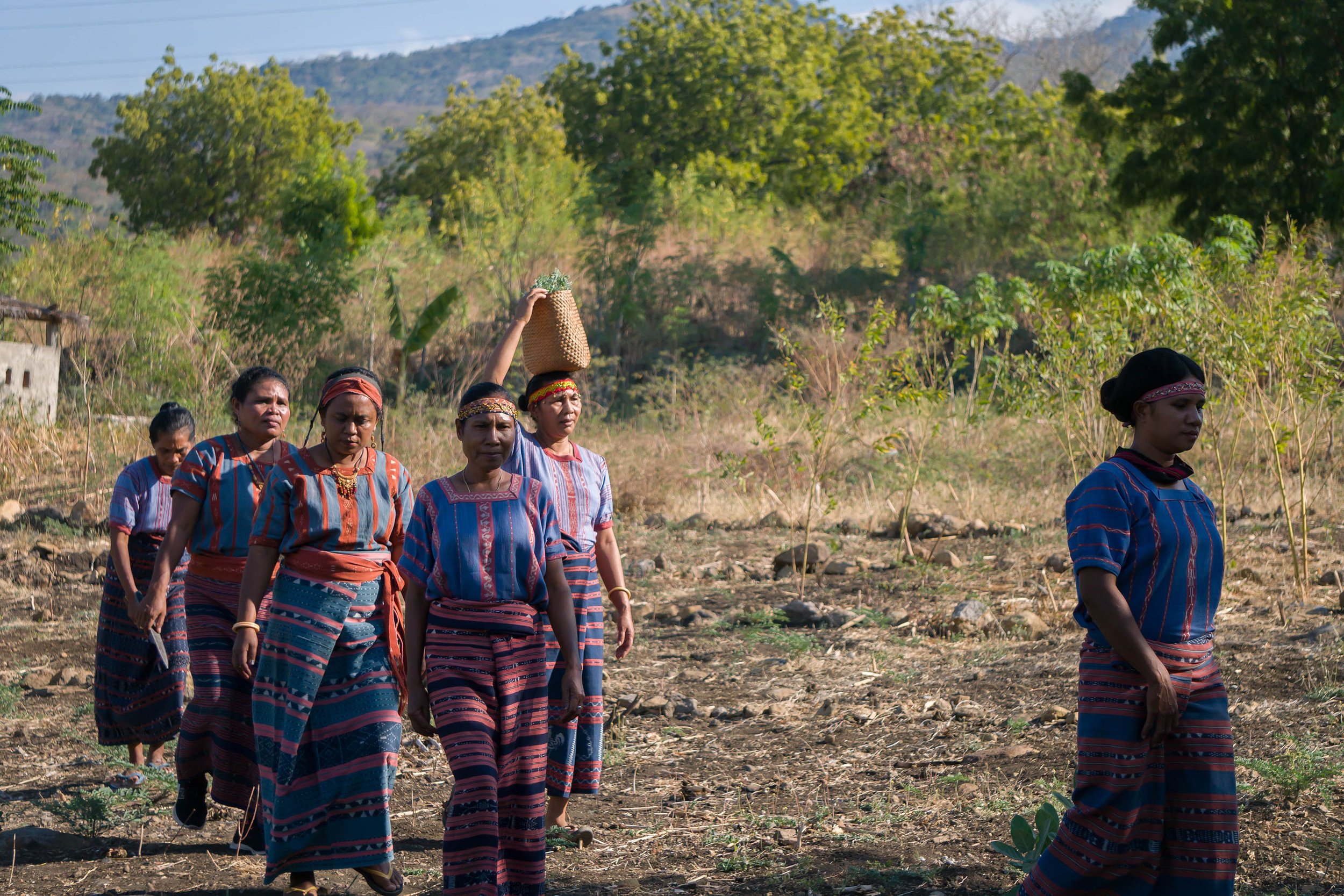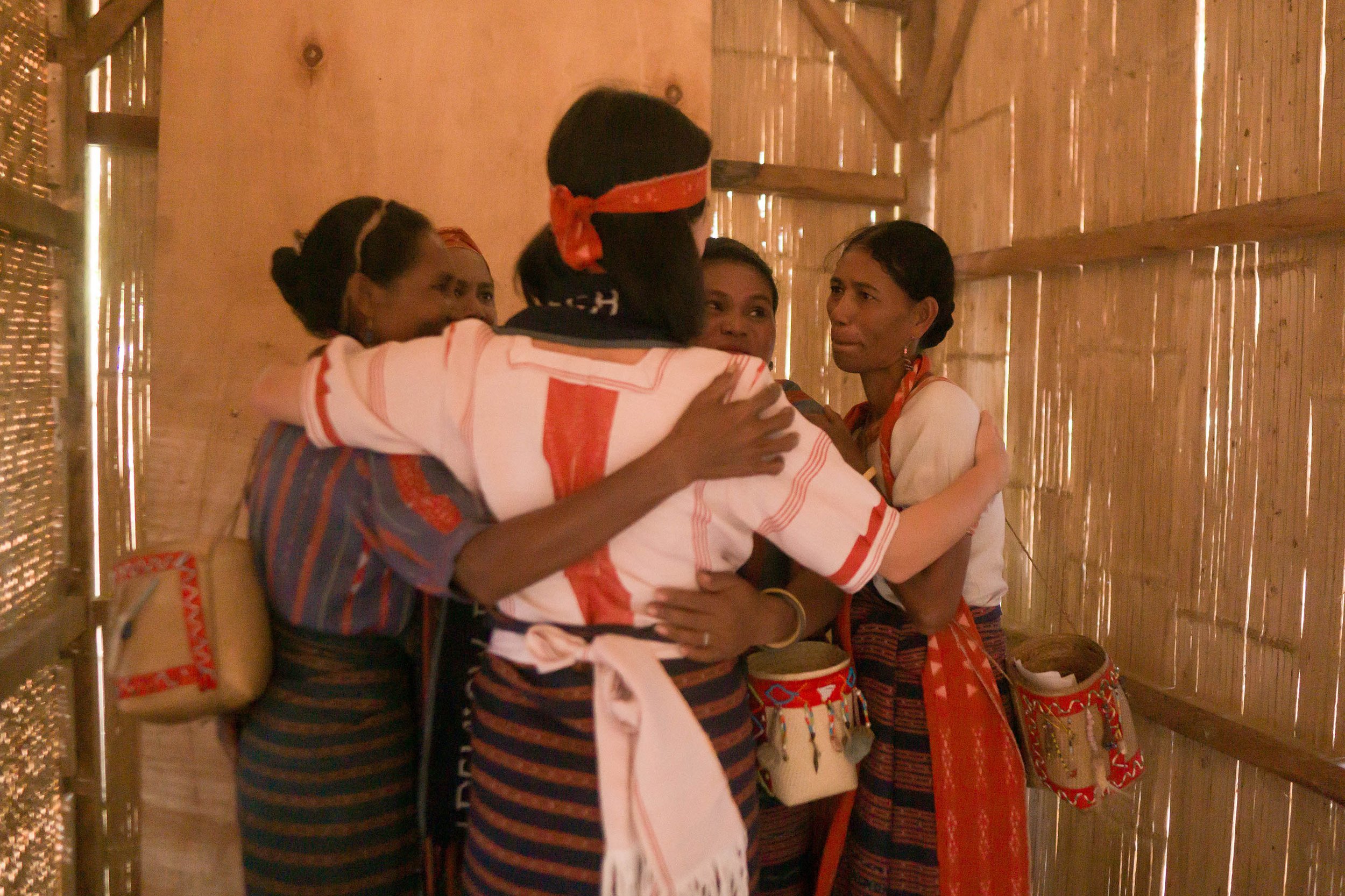
Flores, East Nusa TenggaraEmpowering Women to Sustain Their Indigenous Culture
Providing support where it’s needed most, we find simple solutions that restore soil health and biodiversity - and empower women in Eastern Indonesia adapt to a changing climate.
The Eruption of Rokatenda in 2013 (Image: Satelit OE-1/Wikipedia)
A Forced Relocation
In 2013, the villagers on Palu’e Island in East Nusa Tenggara woke up to darkness and a deafening roar. Mount Rokatenda, their sacred volcano, had erupted. The ground beneath their feet shook as the earthquake destroyed most houses while volcanic gravel and ash fell from the sky.
On that morning, 375 families lost their homes.
In fear of their lives, they packed up what little they could bring on rescue boats to the mainland. For months, they remained in refugee camps. Severing the connection to their ancestral home for the safety of their families.
As uncertainty loomed, the community were faced with a difficult choice: To return, knowing that the active volcano could erupt again at any time, or to stay.
Slowly, the older generation chose to go home. While families with young children decided to rebuild what hopefully will become a more secure home here.
The decision to stay did not come without risks. The assigned relocation village was landlocked and situated on dry, degraded soil.
Space was scarce, and each family could only build a humble 12-metre square home. Enough for two rooms and a space to sit together, but no more.
What was previously a self-sustained community of fishermen and farmers are now severed from their ancestral way of life.
The relocation village is situated on a dry, bare soil condition that is very difficult to grow anything. As a result, the community is unable to continue their self-sustained agricultural way of live.

From Tragedy to Hope
Without fertile land, growing food for their families became impossible. In the midst of these limitations, the community did not give up. Instead, they rose together. Weaving became a lifeline. Women became the backbone of the family, responsible for household duties and child care, but also to provide the much needed income.
In 2018, we were introduced to this resilient community through Warlami, a natural dye collective led by the visionary Ibu Myra Widiono. With their support, a natural dye training was conducted to protect the Mamas from hazardous chemicals.
Since then, we have supported the cooperative in various ways: providing threads to improve the quality of their weaving, offering emergency donations during the hardest periods of the pandemic.
In August 2024, we finally opened our fifth Rumah SukkhaCitta here.
A humble space meant to help the Mamas train the next generation while continuing their unique Palu’e cultural identity. To date, the project has benefited 18 families directly with hundreds impacted through the rise of visitors to the village.
Providing Support Where It’s Needed Most
The project is ongoing and we are actively raising funds to support the community. In this phase 2 of the initiative, we are looking for partners to help us donate the following necessities:
Adding An Open Lawn Space for Cultural Practices
Besides a space for weaving, the community has indicated a need for a central ‘Alun-Alun’ (open lawn square) where they can practice communal dance and rituals.
To make this a reality, we are fundraising to provide a grant for an additional roof structure and a full set of Adat musical instruments.
Sustainable Natural Dye Management
Without access to land, the community is forced to forage dye plants, causing supply to dwindle and threatening their ability to continue natural dyeing.
The grant will assist them in renting a nearby plot for 5 years, so the Mamas can practice sustainable cultivation of plant dyes.
Cultural Regeneration
Currently, the older Mamas are the only generation still practising their craft. Threatening the continuation of their unique identity without successful regeneration.
With the space set up, we are fundraising to donate weaving equipments and materials to allow the next generation of girls to learn their ancestral traditions.
In Eastern Indonesia, women are respectfully addressed as ‘Mama’.

Support a Mama
Help us provide free trainings and research & develop even better ways of supporting our farmers - through climate efficient composting, charcoal and refined agroforestry systems.
Together, ensuring more Mamas can nurture our soil while taking care of her family.
Donate Through Bank Transfer (IDR / US$)
Transfer your contribution to our verified account:
Bank: Bank Central Asia (BCA)
Account #: 288 884 0228
Name: YAY Rumah Sukkha Citta
Bank Code: 014
Branch Code: KCU PURI INDAH (0288)
Swift: CENAIDJA
Please email your name, the amount you donated and your payment reference number to donations@rumahsukkhacitta.org so we can send a receipt and keep you in the loop with the progress in the field.



